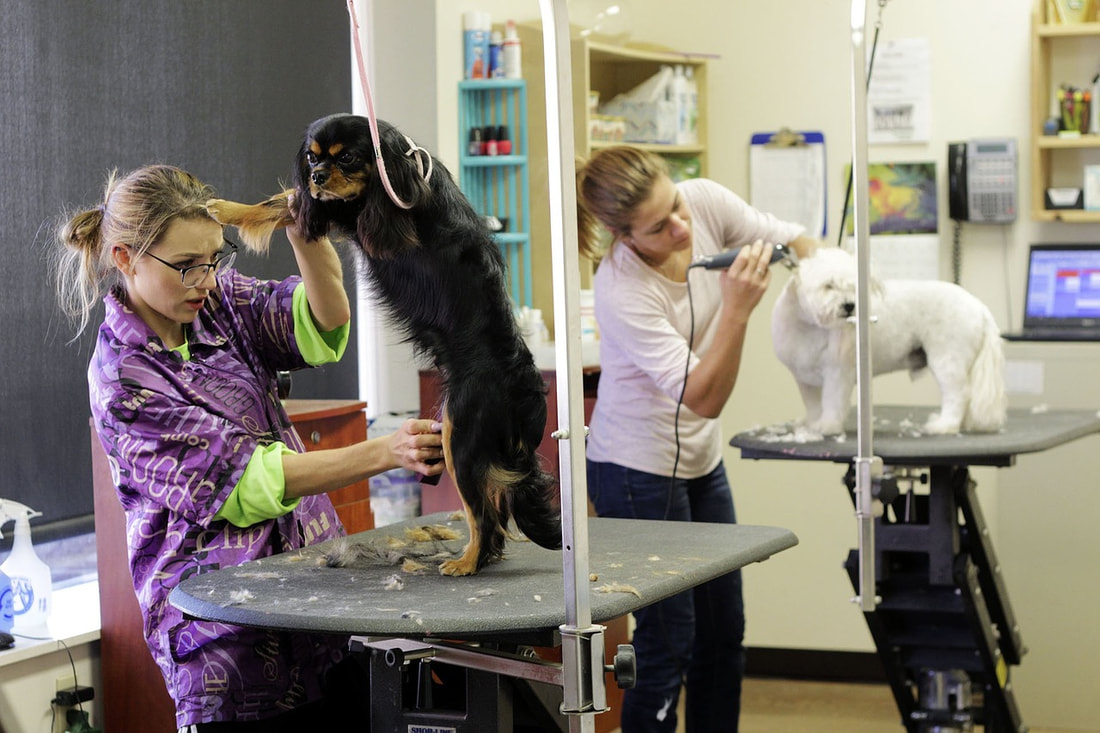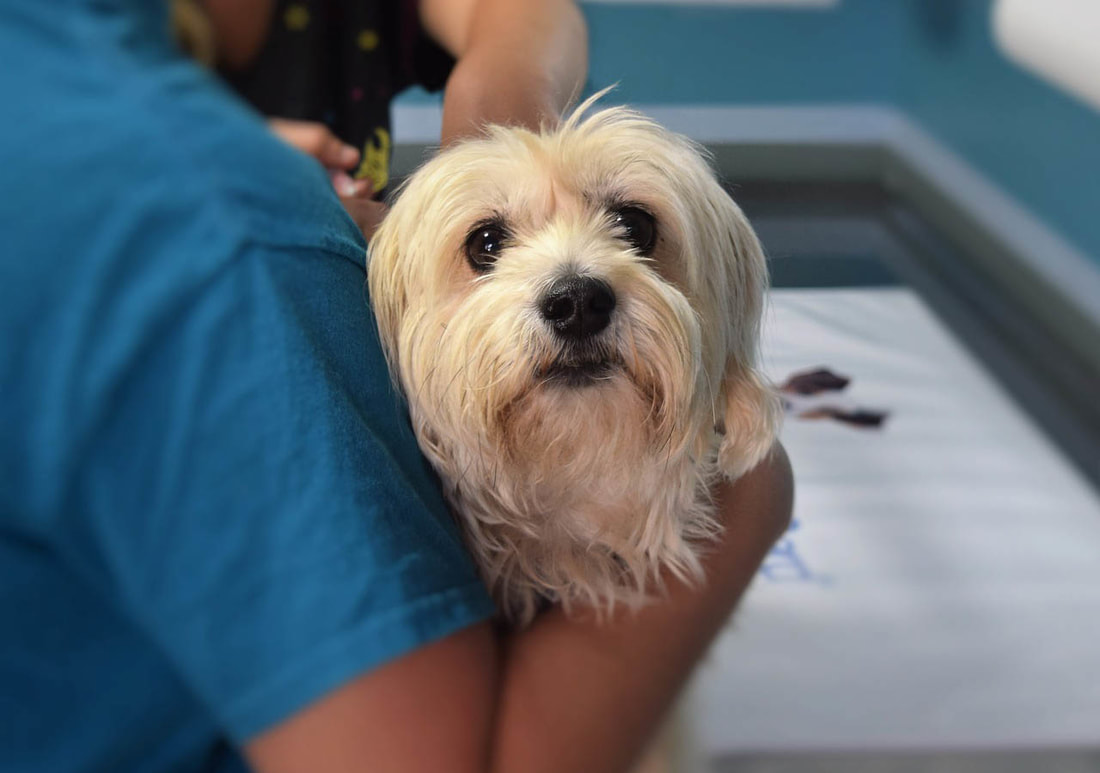|
By Anna Hazard
View the Rest of the Series
Part 1 - Benefits & Drawbacks
Part 2 - Tips, Alternatives, & Helpful Programs Part 3 - Best Dogs for Seniors Part 4 - Best Cats for Seniors Part 5 - Best Birds for Seniors Part 6 - Best Rodents for Seniors Part 7 - Aquariums & Aquarium Plants Part 8 - Best Aquarium Fish for Seniors Introduction
Pet therapy has often been suggested when it comes to helping the young and old alike recover from both mental & physical problems. Here we discuss both the benefits & drawbacks to owning pets for seniors as well as going over things to keep in mind when searching for that perfect elderly companion. The best overall breeds & types of individual pets for benefiting older adults are also examined in greater depth.
The Benefits of Pets
The many benefits of keeping pets have been well known for years. This includes studies that indicate that pet owners have significantly reduced levels in triglycerides, cholesterol, and the stress hormone cortisol. Heart & pulse rate as well as blood pressure (50% in the case of high blood pressure linked to mental stress) were also noted to decrease within pet owners. This in turn lead to noted drops in known risk factors for cardiovascular disease & stroke, an increased chance of survival amongst heart disease patients, and an overall mortality rate drop of 1/3rd amongst pet owners.
Pets help people cope with stress by providing emotional support & distraction. They aid in relaxation as their presence has been linked to the increased production of feel good hormones such as serotonin. Overall pet owners have reportedly less headaches, indigestion, insomnia, and other smaller complaints as well as higher pain tolerance levels. In particular past studies focusing on the elderly have shown that seniors with pets have both better physical and mental health to the tune of medicare beneficiaries with pets having 21% less medical visits and treatments compared to their petless peers. Seniors with pets also tend to have fewer health related complaints, have decreased bouts of depression or anxiety, and recover faster from surgeries and illnesses. They are particularly known for being able to sooth outbursts & raise the mood of those suffering from Alzheimer's. Within the elderly, the companionship of pets have been shown to increase mental alertness as well as improve their quality of life both emotionally & physically which promotes longer life overall. The daily routine & responsibilities necessary for taking care of a pet encourages seniors to be more physically active & emotionally invested in their daily lives while providing more social opportunities and simply giving seniors a purpose for getting up each morning. Even the mere act of stroking or brushing fur or feathers provides therapy for the hands. Besides their ability to provide mental stimulation with increased physical activity & exercise, pets are also known for helping with self-esteem, providing a sense of security (especially amongst those that live alone), a sense of being needed that is returned with unconditional love, as well as helping seniors deal with isolation, loneliness, grief & loss, and other stressful situations many seniors elderly may find themselves in. Seniors and others with certain disabilities or illnesses may also find benefits in the use of service animals such as those that can help people in wheelchairs open & close doors or engage in other forms of pet therapy. In particular the presence of animals in institutionalized settings such as hospitals, rehab centers, and nursing homes are known for alleviating depression and increasing alertness & interaction amongst residents. The Drawbacks to Owning PetsHowever as with most things, the drawbacks must also be considered when it comes to seniors owning pets. All pets will require a basic level of health & mobility to be able to take care of them. If a senior is lacking in the ability to properly take care of their chosen pet, they will have to depend upon a family member or other caregiver to compensate for them. Pets also bring their own sets of daily responsibilities and chores including commitments for both time & money. This includes regular grooming, feedings, exercise & playtime along with their attendant supply costs (some of which may be mitigated with a smaller animal). Certain pets such as cats & dogs will require veterinary visits with the ability to bring the animal to the vet or the ability to find a vet that does house visits. Seniors incapable of providing proper grooming (either maintenance of fur or toe nail clippings etc) will also require access to a groomer. In addition, certain living arrangements preclude the ability to own certain types of pets. Cats & dogs are commonly not allowed in certain apartment complexes, assisted living establishments & retirement communities, or nursing homes. Some places only allow pets after leveraging an additional fee. Also, it must be kept in mind that pets may outlive their owners and thus a succession plan for what may happen to the pet afterwards must be taken into consideration. A few more specifically scientifically grounded drawbacks include a study that points to seniors who often drive around with pets in their cars having twice the probability of getting into an accident than those with pet-free automobiles. Another thing to keep in mind when choosing the exact type of pet for the elderly includes the greater risk of tripping & falling for a senior that has pets underfoot with more than 86,000 fall injuries each year associated with cats & dogs. Seniors in particular tend to suffer bone fractures more often when tripping over pets rather than the contusions & bruising that a younger pet owner may receive. The injury rates associated with owning cats & dogs increase with age with a particular spike to dog owners over the age of 65+. Those senior loved ones who are particularly susceptible to falling or otherwise have living conditions that limit their pet ownership ability, yet still remain more emotionally attached to cats & dogs instead of birds, fish, and other animals, can indulge in canine & feline home visiting programs instead.
0 Comments
Leave a Reply. |
AboutNews updates, tips, and guides on senior care, senior health, stress relief and a host of other caregiving related topics from the professionals at Ella Stewart Care. |






 RSS Feed
RSS Feed
